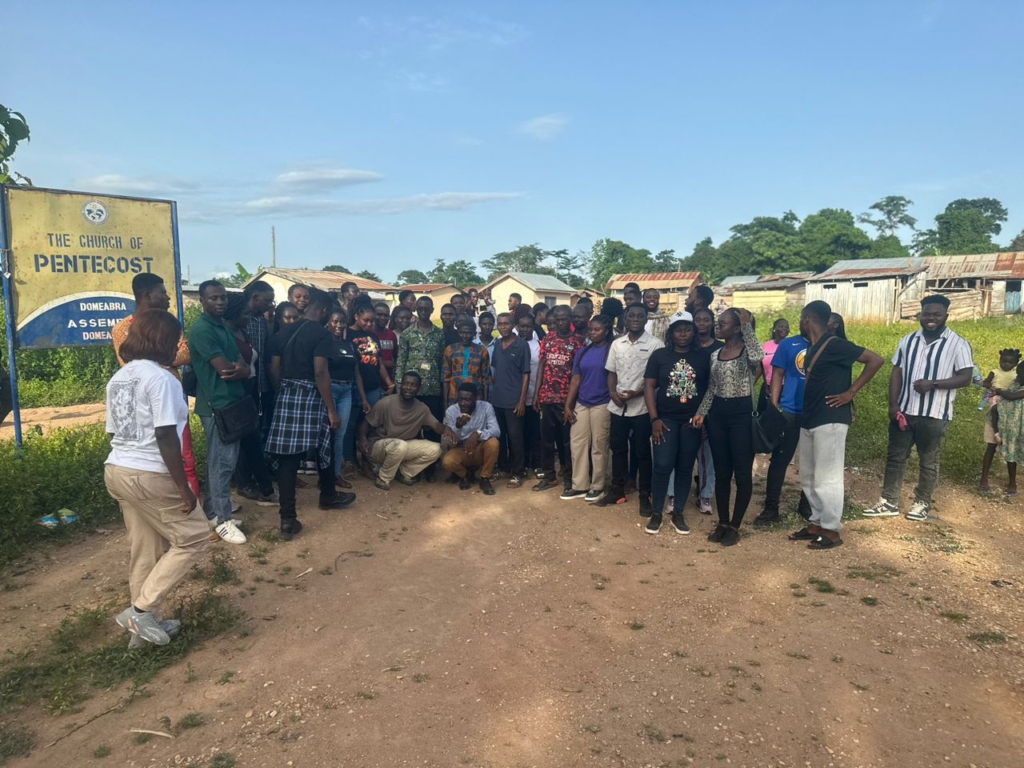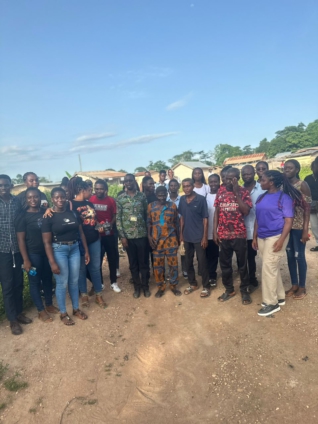Senior Lecturer in the Department of Geography and Rural Development at Kwame Nkrumah University of Science and Technology (KNUST) has remarked that the concept of local governance and decentralization in Ghana must be changed to enable the equitable distribution of development.
According to Dr David Forkuor, whereas urban areas have practically every developmental need met, rural communities continue to struggle to get basic essentials like as water, power, and quality education, among other things.
"We have observed that rurality is real, it's not a myth, it exists and our rural folks are deprived of basic human needs like quality education and others," he said.
Speaking to JoyNews after leading some department students to Nipankyeremia in the Amansie South District of the Ashanti region, he said the town lacks practically every developmental necessity, which he finds disturbing.
He stated that the ministry of local government must work relentlessly to offer development to poor communities.

"I can see that poles have been erected but it's without wires, and that has been their primary complain, every home that you enter they complain about the lighting system, this is why I said that the local government must step up in providing such needs," he noted.
Dr. Forkuor went on to say that after interacting with his students, several were astounded by the extent of poverty in the Manso area.
He complimented the District Chief Executive, Clement Opoku Gyamfi, as well as the residents for their cooperation and support.
About 260 final-year students were led to the district to experience the practical sense of rurality.
Mr. Joseph Yaw Yeboah, one of the Lecturers who also led another group to two other localities, Pakyi No. 7 and Domeabra, talked about how the level of educational progress in those places is miserable.
He mentioned that the state of the school structures, combined with limited furniture, is having a negative impact on teaching and learning in the communities.
Besides education, Mr. Yeboah indicated that the communities lack health facilities, drinkable water, electricity, and a good road network.
He added that, while the trip was for educational purposes, the department will compile a report on the findings and engage government on ways to help alleviate the people's concerns.
The Department of Geography and Rural Development also gave communities books, pens, pencils, shirts, sandals, and other items worth hundreds of cedis.
Asare Bediako Eric, the Assembly member for the area who received the gifts on behalf of the communities, expressed delight at the gesture, saying it will go a long way toward alleviating the plights of children in the electoral area.
Concerning the road and electricity, he noted that efforts are being made to fix the road as part of the Cocoa roads project, and that the government has promised that the electricity cables will be fixed by June.
Latest Stories
-
Ken Ashigbey, Joyce Aryee and others grace MTN’s Festival of 9 Lessons and Carols
1 hour -
Obuasi Cricket Academy celebrates excellence at end-of-year awards night
2 hours -
WASSCE: Scanning of objective answer sheets to start tonight – WAEC
2 hours -
Education Minister hasn’t prioritised WAEC – Nortsu-Kotoe
3 hours -
Bawumia meets Manifesto Committee members to express appreciation
3 hours -
To chocolate, Ghana’s pride by Bioko
4 hours -
Chartered Institute of Bankers, Ghana, confers Honorary Fellow status on Victor Yaw Asante
4 hours -
BoG marks end of year with Thanksgiving Service
4 hours -
Ghana’s Next Sports Minister: The Debate Begins
4 hours -
Election 2024: NPP advised to be mindful of the reasons being ascribed to their election lost
5 hours -
GNFS urges Ghanaians to prevent fires during yuletide
5 hours -
Report tobacco users who smoke publicly – FDA advises
5 hours -
Abdallah Ali-Nakyea elevated to Associate Professor at UG School of Law
6 hours -
Kick2build commissions 5 libraries in Klo Agogo, donates school supplies
6 hours -
Slim and Fit Ghana donates to kids at Motherly Love Orphanage in Kwabenya
6 hours

